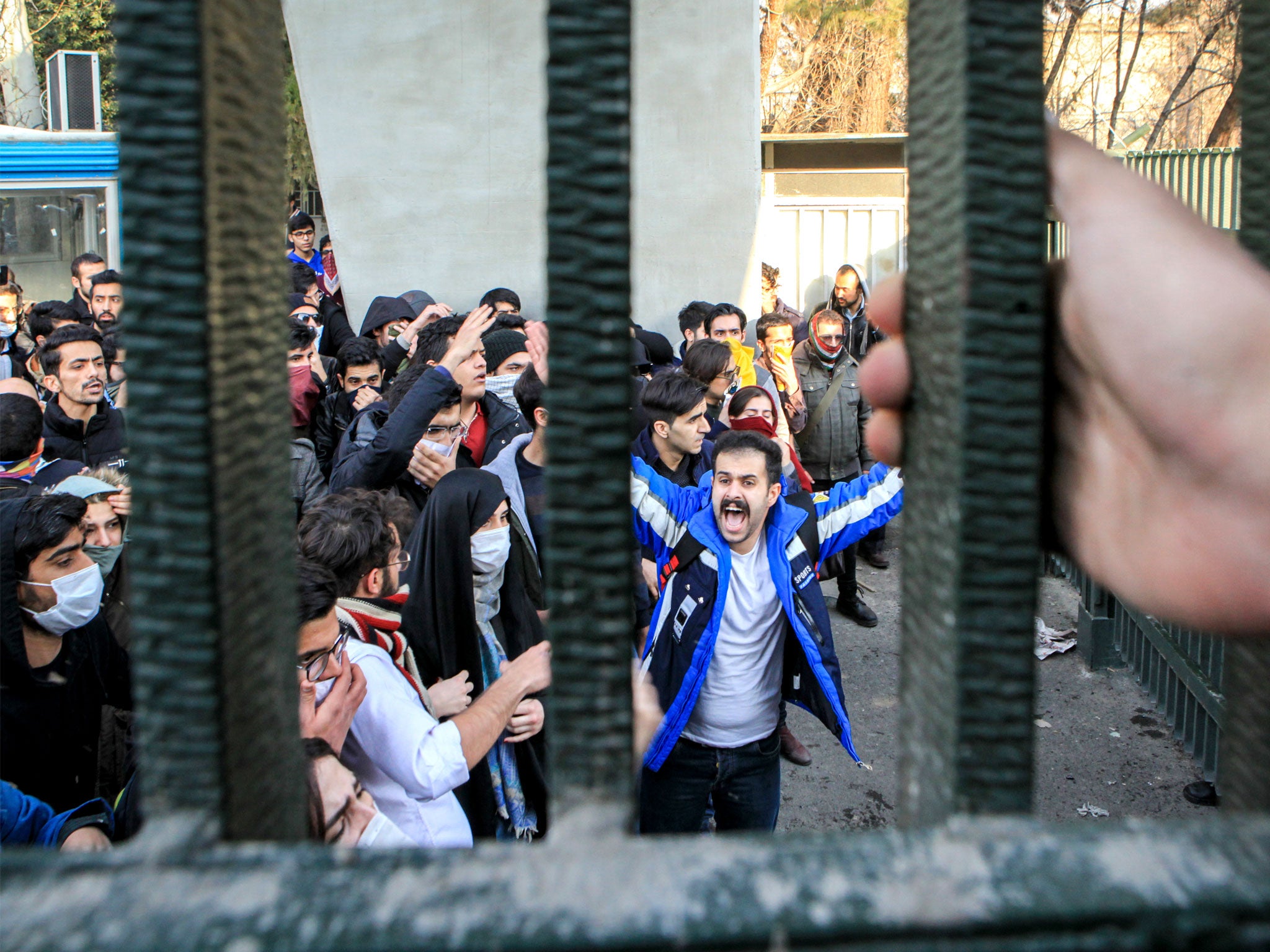Iran protests latest: Grand Ayatollah accuses foreign powers of meddling as protest death toll rises to 22
Grand Ayatollah Ali Khamenei accuses foreign powers of clandestine sabotage
The crisis in Iran has been internationalised with the country’s supreme Leader, Grand Ayatollah Ali Khamenei, accusing foreign powers of clandestine sabotage and other senior officials accusing the US, Britain and Saudi Arabia of instigating the protests which has led to bloodshed and destruction.
What happens in the streets of Iran in the next few days will, say the opposition and officials, shape the response of the government in Tehran, which is under mounting pressure from hardliners and conservative clerics to crack down on protests. Twenty-two people have been killed so far; police stations and militia bases have been attacked and at least 450 arrested.
The reformist government of Hassan Rouhani has claimed that it is avoiding violent showdowns with the police out on streets and the Revolutionary Guards keeping to the barracks. But Ayatollah Khamenei’s intervention, saying the nation was under attack, may pave the way for more punitive action.
“The enemies of Iran are deploying every means at their disposal including money, arms and political and intelligence support to coordinate making trouble for the Islamic establishment,” said the supreme leader. “The enemy is always looking for an opportunity and any service to infiltrate and strike the Iranian nation.”
Donald Trump has kept up a stream of tweets effectively calling for an uprising in Iran. Ayatollah Khamenei did not name any of the supposed enemy states, but Ali Shamkhani, the secretary of the Supreme National Security Council, blamed the US, Britain, and Saudi Arabia for the violence. “The Saudis will receive Iran’s response and they know how serious it will be,” he warned.
The protests had been described as the largest since that of the Green Movement, in response to the allegedly fraudulent election of Mahmoud Ahmadinejad, in 2009. But Mohammad Marandi, an academic with influence in Iran’s governing circles, insisted that the numbers were in reality much smaller. He drew a parallel, instead, to another set of disturbances, the England riots of 2011. “We had a situation then where the British Prime Minister called on social messaging firms to show responsibility and not be used as a platform to promote violence and criminality, and the companies complied,” he told The Independent.
“We now have a situation where there are people in the UK, Europe and the US in the West, who are encouraging attacks on police stations, telling them how to make Molotov cocktails. What would the reaction be in the UK and elsewhere in the West if there were people in Iran directing rioters to carry out attacks on police stations in London, Paris and Washington? I wonder if the British Government has thought about the effect this will have on future rapprochement with Iran in the future?”

Mr Marandi stressed that that initial protests last Thursday were about economic grievances and were “entirely legitimate”, but, he said, “many of the marches were subsequently hijacked for extremist political motives. There are legal ways to protest: let’s not forget Iran is a democracy, we had presidential elections here this year with a turnout of more than 73 per cent in which 57 per cent voted for the current President.”
The Iranian authorities and Mr Marandi accuse the Mojahedin-e Khalq, which has bases in Europe including London, for instigating violence. The organisation fled Iran, basing itself in Saddam Hussein’s Iraq. A 2004 report by the FBI accused the organisation of money-laundering; three years previously the Charity Commission for England and Wales closed down a charity, Iran Aid, run by the group. Mojahedin-e Khalq denies any wrongdoing.
Join our commenting forum
Join thought-provoking conversations, follow other Independent readers and see their replies
Comments
Bookmark popover
Removed from bookmarks